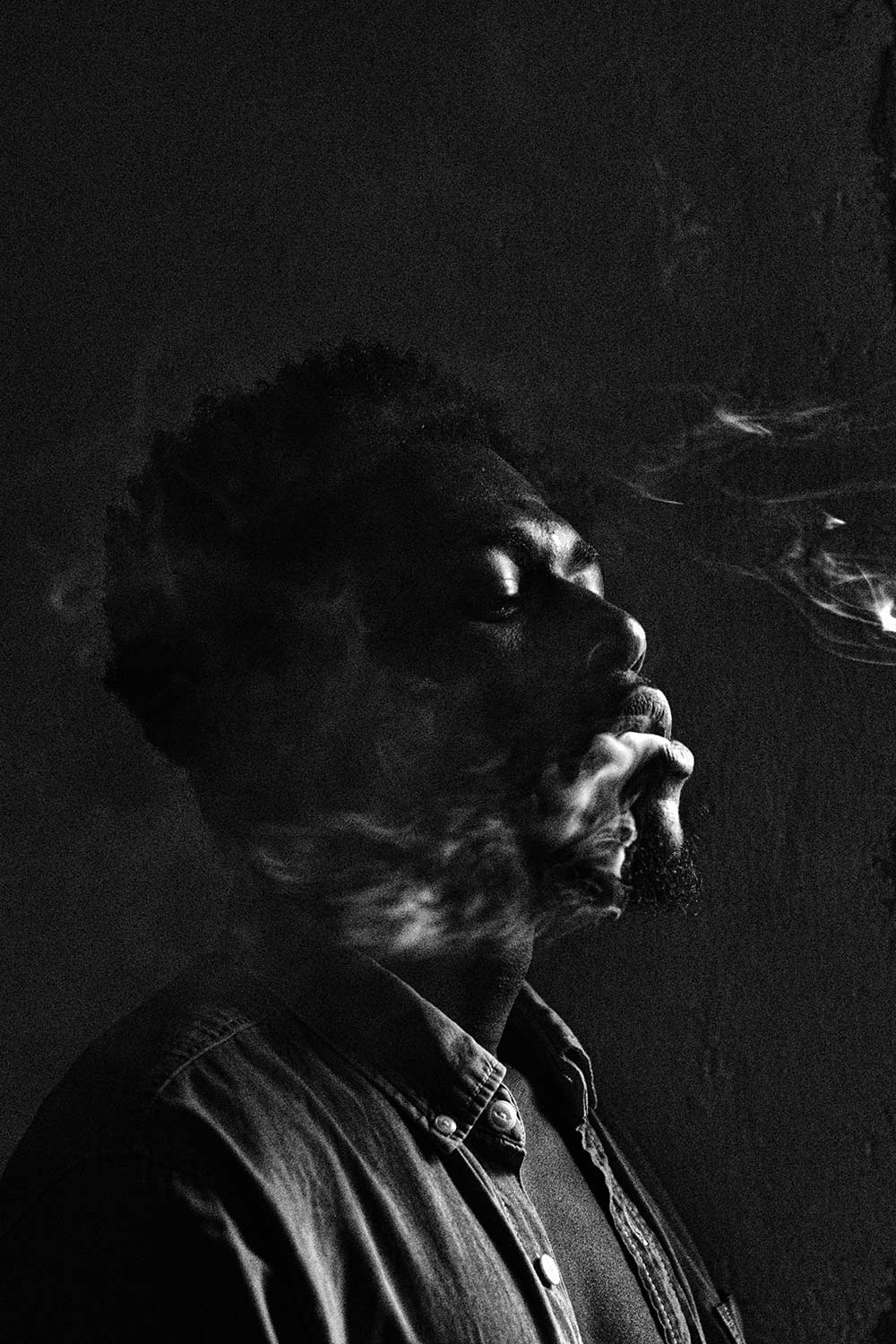Cannabis is more than a good high. Discover how weed can provide you with much-needed mental health benefits.
Most of us spent the last year stressed and rocked with unpleasant feelings. As a result, many people are leaning on healthier alternatives to prescription medications to manage their mental health.
Research is still woefully lacking when it comes to understanding the full scope of cannabis’ benefits. Still, studies suggest our favorite plant can have a positive effect on your mental health.
Let’s explore some of the ways cannabis may have a positive impact on your mental health.
Who can benefit from cannabis?
A large percentage of people suffering from mental health conditions can benefit from cannabis.
Centuries before the advent of lab-developed medications, people relied on cannabis for easing a wide array of medical and mental health conditions.
This is because cannabis interacts with your endocannabinoid system (ECS), a complex system responsible for regulating and balancing many processes in your brain and body, including mood, sleep, and memory.
As states legalize medical and recreational cannabis, more people suffering from mental health conditions have started turning to the plant for relief.
Cannabidiol (CBD), in particular, has seen a massive spike in popularity in the health and wellness industry. Today, CBD products line the shelves of dispensaries, organic grocers, and day spas. Even though studies suggest the hype behind CBD has overshot the science, there’s enough anecdotal evidence and public endorsements to understand its genuine health benefits.
But what can cannabis help with? Well, for starters:


Cannabis can reduce stress.
Stress is the “silent killer,” and managing stress might be the key to promoting your physical and mental well-being.
From the moment we wake to the time we go to sleep, stress is a part of our daily routines. We head off to our demanding jobs in our busy lives to support our dependent families. Add the weight of the pandemic and social upheaval, and stress can become unbearable.
When we’re stressed, our bodies produce a hormone called cortisol, which in turn produces inflammation as the body begins to mend. Naturally, long-term exposure to stress and inflammation can be detrimental to your health.
A Washington State University (WSU) study suggests “10 or more puffs” of cannabidiol (CBD) or tetrahydrocannabinol (THC) can reduce stress.
Of course, not everyone’s systems are the same, and not everyone will react the same way to cannabis. Micro-dosing is the best practice; start low and go slow.
Cannabis might ease anxiety.
Many of us experience daily anxiety with symptoms like worry, tension, and unease. And some unfortunate folks experience debilitating panic attacks.
Anxiety is so prevalent among Americans that the disorder has affected over 31% of the population.
All too often, the standard treatment for anxiety is prescription medications like Xanax, and Lexapro, both of which can be habit-forming, and in extreme cases, can cause respiratory failure or death.
The very same WSU study we mentioned earlier also found that cannabis, in moderation, can lessen the intense feelings of anxiety. This may have something to do with the fact that cannabis, when introduced to the ECS, can release the feel-good endorphins people often associate with the euphoric “runner’s high.”
Cannabis might help insomniacs.
Sleep is essential for maintaining physical and mental health, but according to the American Sleep Association, 50 to 70 million of us aren’t getting enough of it.
When you deprive your body of sleep, your cognitive abilities decline, and your risks of depression, exhaustion, and stress can rapidly increase. It’s the perfect recipe for a mental health disaster.
Shut-eye is something cannabis can significantly improve – much like melatonin; it can restore a person’s natural sleep cycle.
If you need help alleviating insomnia, you should look at high THC strains; THC is a sleep-inducing cannabinoid. As a bonus, people who have PTSD could benefit from higher THC as THC can reduce REM sleep, reducing nightmares.
Cannabis may lessen the symptoms of depression.
Depression impacts more than 260 million people today. It’s one of the leading causes of disability worldwide. Chances are you or someone you know could be one of these people.
While the research of cannabis’s impact on depression is still in its early stages, scientists at the University of Buffalo speculate that depression can directly result from suppressed endocannabinoids in the ECS.
When introduced to the ECS, cannabis can help restore those endocannabinoid levels and relieve many depression symptoms.

Americans are increasingly embracing CBD as a more natural and holistic approach to treating depression for this very reason.

Research suggests cannabis can help with dementia and Alzheimers.
Our brains go through a degenerative process as we age. Dementia is a heartwrenching decline in cognitive function that can impair memory, language, behavior, and more. Worldwide, 50 million people have dementia, with Alzheimer’s disease contributing to possibly 60% to 70% of these cases.
Recently, a neurologist at the Banner Alzheimer’s Institute stated that the studies of medical marijuana’s effects on dementia show promise.
A 2017 study even suggests that CBD combined with THC could be a novel therapy for Alzheimer’s Disease-related behavioral problems. The jury is still out on the reasons, but experts speculate that low cannabis doses might slow the process of memory loss and improve cognitive abilities.
Studies suggest cannabis can improve PTSD symptoms.
Post-traumatic stress disorder (PTSD) could overwhelm the mental health system in the post-pandemic world.
And PTSD isn’t limited to folks in the military. It can plague anyone who has experienced an unpleasant situation that has left a lasting impression on the brain.
PTSD symptoms can include anxiety, nightmares, hypervigilance, withdrawal, and self-destructive behavior. The treatments for this disorder generally involve increasing serotonin levels, something cannabis can do, but most doctors prescribe harmful prescription opioids instead.
One study has shown the direct correlation between cannabis and the reduction of activity in the part of the brain associated with trauma and fear. Another study shows cannabis can reduce the intensity of memories related to their trauma.
Cannabis might be an alternative therapy for people with schizophrenia.
Although not as common as other mental disorders, schizophrenia is a severe mental illness characterized by psychosis, hallucinations, delusions, and abnormal behavior.
Most schizophrenia treatments involve prescribed antipsychotic medications like Clozapine combined with psychotherapy. However, cannabis could potentially be an effective and more natural alternative treatment.
While research is ongoing, one study suggests that CBD has antipsychotic properties that can alleviate the psychosis involved with schizophrenia. A similar study suggests cannabis can play a vital role in the treatment of schizophrenia.
This may also have something to do with the fact that the ECS can regulate the part of the brain responsible for reward processing, a function that patients with schizophrenia often lack.
We’ve barely scratched the surface of understanding this beautiful and complex plant.
Despite the promising research regarding cannabis and mental health, there is still so much work to do.
The World Health Organization is pushing to have cannabis reclassified, which could open the floodgates to greater recognition and research on the medical and therapeutic benefits of the plant.
Until then, it is essential to consult a physician before starting any cannabis treatments or contact the experts at Leaf411 at 844-LEAF411.
If you’re ready to start responsibly exploring the mental health benefits of cannabis, you can stop by your nearest dispensary.